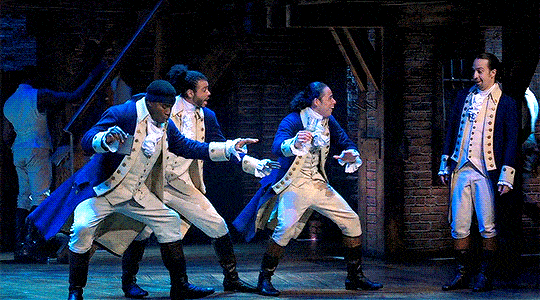Recently, Disney released the trailer for the new live action version of The Little Mermaid which will come out in 2023. Here’s the video in case you haven’t seen it yet.
With our world being the way that it is, this trailer triggered a massive discussion online. I won’t get into the drama of it all. Instead, I’d like to dig a little deeper into why people feel so strongly about this.
It’s no secret that this boils down to a very important issue, the big “R” word…
…Representation.
Sure, one could argue that it’s actually racism and while I don’t dismiss that as being a part of it and I do care about the issue deeply, there’s nothing I can say that hasn’t already been said about racism. So for this article, I choose to focus on representation.
The Little Mermaid is just the latest example of casting of a person of color to play a character that was typically portrayed as or believed to be white.
Before Halle Bailey as Ariel, just to name a few, there was also:
Regé-Jean Page as the Duke of Hastings in Bridgerton
Zoë Kravitz as Catwoman and Jeffrey Write as Commissioner Gordon in The Batman
Noma Dumezweni as Hermione Granger in Harry Potter and the Cursed Child
Almost the entire cast of Hamilton
Ok, I know that last one is about actual people in history who were in fact Caucasian, but was it really essential to the Broadway story that they’d be white? It ended up better representing America as it is today. And come on, who’s really watching Hamilton for the historical accuracy anyway?

But I digress.
How important is it to “see yourself” on screen?
We can identify with a character on so many different levels; you can identify with their:
story
circumstances
struggles
interests
habits
personality
orientation
gender identity
culture
race
etc.
The more similarities you find, the easier it is to connect. Although sometimes a connection with just one of these is enough to create a personal impact.
There are those of us who grew up without these kind of icons that “look like us” and we were fine with that. We were fine connecting through other characteristics and in truth, any resonance can be a beautiful thing no matter how small the detail. Until the time comes, however, when we actually experience our own likeness reflected in these ways, we can only imagine impact it would have.
You don’t need to identify with race to feel seen, but it helps.
The impact is further amplified too when the aspect you connect with is something that in the past you might have felt neglected or rejected for by others. So When you see someone with that same trait being portrayed and treated with love, care, and respect, it can be especially moving.
I think this is why representation is so important for people and why there are also those who just don’t understand it. Those who get it need no explanation. Those who don’t get it might just not have faced neglect or rejection because of of those specific traits and so it seems comparatively insignificant to them.
That’s not necessarily a bad thing, it just means it wasn’t part of their world before. Now that they’re being introduced to characters that don’t represent them in the way that they were used to, there’s a level of discomfort that can to occur with any change. What matters more is how one acts in response to that.
One could choose to be unproductive and lash out, or instead choose the productive path which is to take a step back, reflect on the emotions and the discomfort and realize that nothing is really being taken away. All the memories associated with the previous versions held dear are still there to be loved and no one can ever take that away. This is simply a moment to welcome more people into the things we love.
Celebrations of Cultures
Big companies have started to realize the value in all of this. Though admittedly, it’s not ridiculous to suspect that profits and marketability are the values they’re quietly giving more importance to rather than a genuine desire to be inclusive. At the end of the day, it’s still a positive effect on the world and a positive effect for all the little kids who now get to say that Disney (or any other company) represents them too.
Of course, along the way mistakes had been made with varying degrees of severity. From the lack of effort in selecting Indian dresses that Indians would actually want to wear for Parvati and Padma In Harry Potter and the Goblet of Fire to the egregious romanticization of the relationship between Native Americans and the colonizers in Pocahontas. These are the kinds of portrayals that feel like insults to the cultures they half-heartedly attempt to represent. Thankfully now we see less and less of these types of errors.
It can mean so much to see your culture and heritage portrayed with care on screen. It feels as though the world is saying “I see you and I appreciate you”.
Think of “Brave” for Scots.
Think of “Encanto” for Colombians.
Think of “Turning Red” for Chinese and Chinese Canadians.
Think of “Ms. Marvel” for Pakistanis.
All loving celebrations of cultures through storytelling and I do hope that one day everyone feels celebrated in the domains that mean the most to them. Everyone deserves to feel appreciated. Everyone deserves to feel that they belong.
I, like many of you, have been touched by the reactions of young black kids to the new Little Mermaid trailer who now seem to feel more strongly than ever that they are a part of that world, or rather, part of our world.